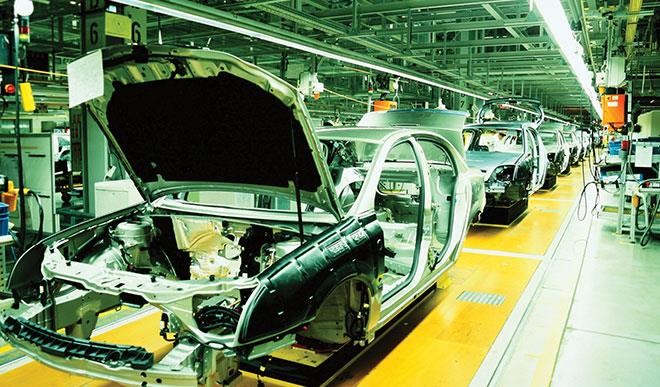‘How locally-assembled vehicles can thrive’
Prices of locally assembled vehicles can only become competitive when policy and environment are right to justify economics of car production in Nigeria, Managing Director, VON Automobiles, Tokunbo Aromolaran has said. Aromolaran, who spoke in Lagos at the Tokunbo Aromolaran during an oversight inspection of the plant by the Senate Committee on Import Waivers, Concession […]


Prices of locally assembled vehicles can only become competitive when policy and environment are right to justify economics of car production in Nigeria, Managing Director, VON Automobiles, Tokunbo Aromolaran has said.
Aromolaran, who spoke in Lagos at the Tokunbo Aromolaran during an oversight inspection of the plant by the Senate Committee on Import Waivers, Concession and Grants ,urged legislature to enact policy that would restrict importation of used vehicles into the country to forestall emission consequences of old vehicles on the environment and intimidating breakdowns in vehicular traffic.
“It is my ultimate goal to produce at least 1000 units of vehicles monthly so as to bring down unit prices of locally assembled vehicles but there is yet no volume to operate at optimal capacity,” Mr. Aromolaran lamented.
He also emphasized the need for the government to introduce proficient road worthiness act and vehicle emission standard to forestall wanton importation of unserviceable vehicles into the country.
“If only you would help us to control tokunbo cars, we can produce a whole lot of these small cars at very low prices. And as you are aware, tokunbo vehicles pollute the environment and cause gratuitous breakdowns on the roads,” Mr. Aromolaran said.
Also warning it was time Nigeria ceased to create Jobs in foreign countries where fully-built vehicles are made, the plant managing director said: “We are not going to develop our local industries and our children won’t get to work if adequate measures aren’t implemented to raise the bar for local production.”
Mr. Aromolaran said “VON Automobiles can create substantial direct and indirect employment if the environment is right, as all the safety materials we use in buses assembled at our factory are sourced locally. Some of these items include windshield, window frames, sealants and labour.”
VON Automobile has since it began vehicle assembly three years ago, improvised series of factory infrastructures currently used at the plant for production and these gadgets have saved huge foreign exchange cost, the managing director affirmed, adding that the factory has attained 30% local content in bus production since it commenced operation in 2012.
“We started operations in 2012 before the auto policy was inaugurated and we have since then been determined to integrate backwards. A lot of our infrastructures are locally fabricated and this is because we are an import substitution industry.
Instead of keeping people in Japan working, let’s kick-start our factories here, we will never get there if we don’t start,” Mr. Aromolaran reasoned.
The VON director listed some of the existing challenges confronting vehicle assembly plants in the country as: inaccessibility to foreign exchange, delay in the implementation of the auto policy, unavailability of consumer credit scheme and lackluster government patronage.
He advocated total reversal of these anomalies if the general public including customers must benefit immensely from vehicles assembled in the country.
